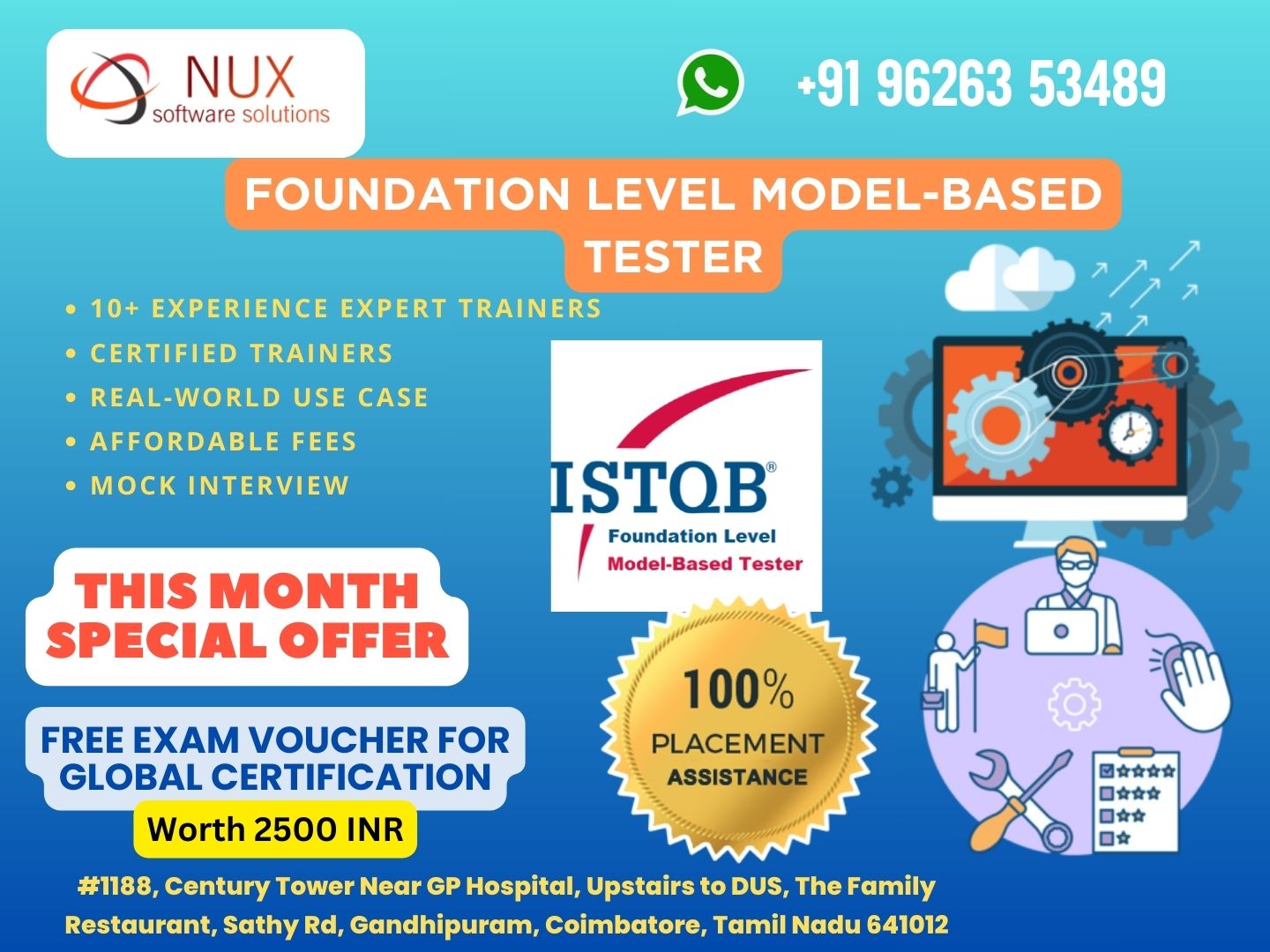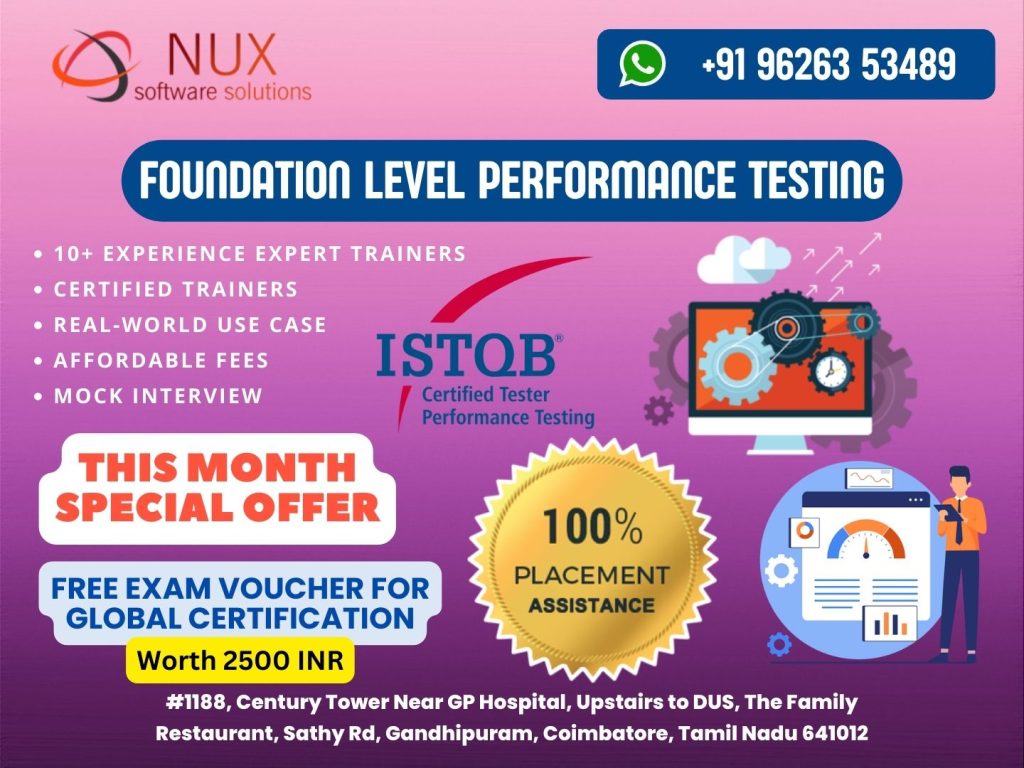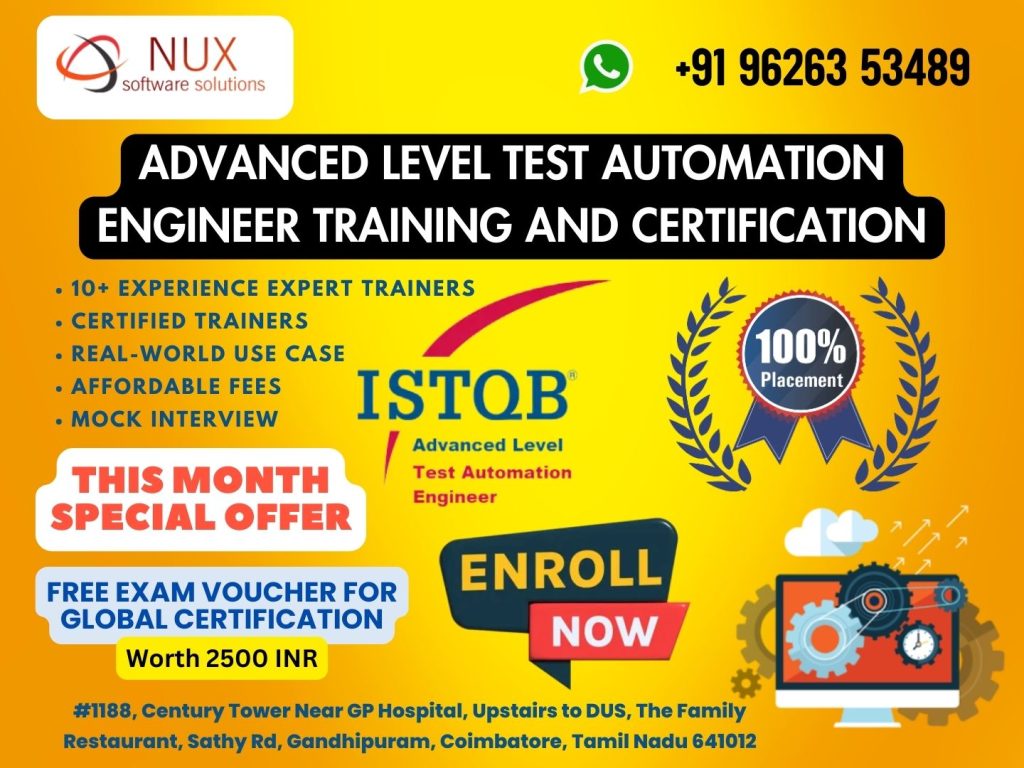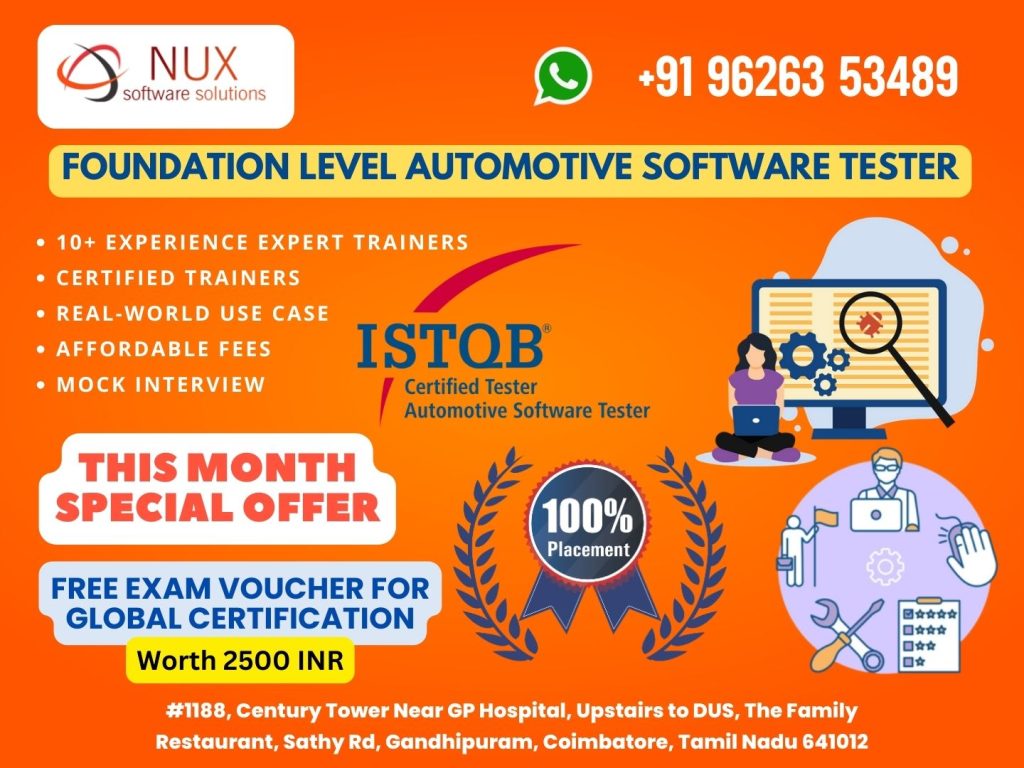Foundation Level Model-Based Tester

Foundation Level Model-Based Tester Training in Coimbatore
Course Overview
The Foundation Level Model-Based Tester (MBT) certification is a globally recognized extension of the ISTQB Foundation Level. It focuses on integrating model-based testing techniques into the software testing lifecycle to improve coverage, efficiency, and traceability.
This training program in Coimbatore is designed to equip software testers and QA professionals with the skills required to apply model-based testing methods effectively in real-world projects. You’ll learn how to use models for test analysis, design, generation, and automation—key to improving productivity and reducing testing costs.
Ideal for test analysts, test designers, and automation engineers, this course combines theory with hands-on exercises and prepares you thoroughly for the official ISTQB Model-Based Tester certification exam.
What You’ll Learn
Fundamentals and benefits of Model-Based Testing
Relationship between models, test cases, and systems
MBT processes and activities in different software development lifecycles
Applying test models to generate and select test cases
Tool support for MBT
Introduction to common modeling languages (e.g., UML, BPMN, Statecharts)
MBT strategies for improving test efficiency and traceability
Who Should Attend?
Software Testers and Quality Analysts
Test Automation Engineers
Test Designers and Test Leads
QA Engineers involved in model-driven projects
Professionals with ISTQB Foundation Level certification seeking specialization
Course Benefits
Build a strong foundation in model-based testing approaches
Enhance your skills in structured test design and coverage analysis
Learn to integrate modeling tools and automation frameworks
Improve collaboration between testing and development teams
Prepare confidently for the ISTQB MBT certification exam
Why Choose Us for MBT Training in Coimbatore?
Experienced trainers certified by ISTQB
Updated curriculum aligned with ISTQB MBT syllabus
Real-world examples using modeling tools like UML and BPMN
Hands-on model-to-test implementation sessions
Flexible learning options – weekday & weekend batches
Complete guidance for certification exam registration and preparation
Master the art of model-driven testing. Join our MBT training in Coimbatore and gain industry-ready skills in model-based QA practices.
Course Syllabus
Modules
Introduction to this Syllabus
0.1 Purpose of the Document
0.2 Overview
0.3 Learning Objectives
1.0 Introduction to Model-Based Testing
1.1 Objectives and Motivations for MBT
1.1.1 Main Motivations for MBT
1.1.2 Misleading Expectations and Pitfalls of MBT
1.2 MBT Activities and Artifacts in the Fundamental Test Process
1.2.1 MBT Specific Activities
1.2.2 Essential MBT Artifacts (Inputs and Outputs)
1.3 Integrating MBT into the Software Development Lifecycles
1.3.1 MBT in Sequential and Iterative Software Development Lifecycles
1.3.2 Supporting Requirements Engineering
2.0 MBT Modeling
2.1 MBT Modeling
2.1.1 MBT Modeling Activities
2.1.2 Subject and Focus of MBT Models
2.1.3 MBT Models Depend on Test Objectives
2.2 Languages for MBT Models
2.2.1 Main Categories of Modeling Languages for MBT
2.2.2 Language Categories Relevant for Different Systems and Project Objectives
2.3 Good Practices for MBT Modeling Activities
2.3.1 Quality Characteristics for MBT Models
2.3.2 Typical Mistakes and Pitfalls in MBT Model Design
2.3.3 Linking Requirements and Process Related Information to the MBT Model
2.3.4 Modeling Guidelines for MBT
2.3.5 Reuse of Existing System Design or Requirements Models
2.3.6 Tool Support for Modeling Activities
2.3.7 Iterative Model Development, Review and Validation
3.0 Selection Criteria for Test Case Generation
3.1 Classification of MBT Test Selection Criteria
3.1.1 Test Selection Criteria
3.1.2 Test Case Selection in Practice
3.1.3 Examples of Test Selection Criteria
3.1.4 Relation to Foundation Level Test Design Techniques
3.2 Applying Test Selection Criteria
3.2.1 Degree of Automation in Test Generation
3.2.2 Pros and Cons of Specific Test Selection Criteria
3.2.3 Good Practices of MBT Test Selection
4.0 MBT Test Implementation and Execution
4.1 Specifics of MBT Test Implementation and Execution
4.1.1 Abstract and Concrete Test Cases in the MBT Context
4.1.2 Different Kinds of Test Execution
4.1.3 The Impact of Changes on the MBT Artifacts
4.2 Activities of Test Adaptation in MBT
5.0 Evaluating and Deploying an MBT Approach
5.1 Evaluate an MBT Deployment
5.1.1 ROI Factors for MBT Introduction
5.1.2 Organizational Objectives and their Relationship to the Characteristics of the MBT Approach
5.1.3 Metrics and Key Performance Indicators
5.2 Manage and Monitor the Deployment of an MBT Approach
5.2.1 Good Practices when Deploying
5.2.2 Cost Factors of MBT
5.2.3 Integration of the MBT Tool



